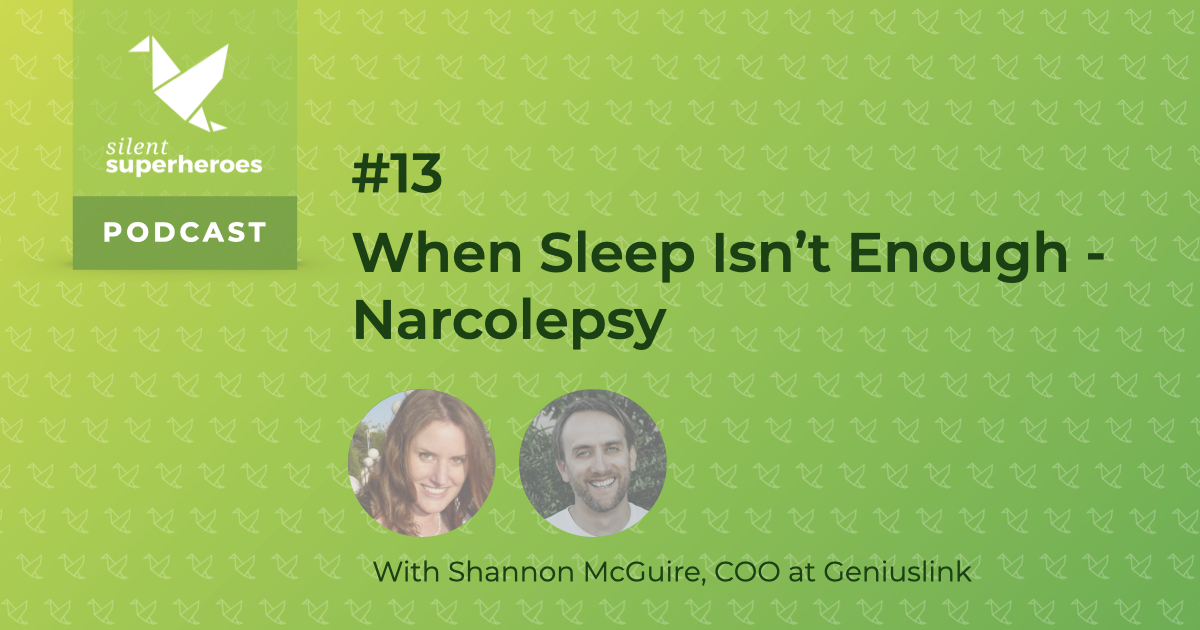As Shannon read the driving direction, she fell asleep again. This wasn’t the first time, in fact, she’d done it after every direction. Her inability to stay awake had become a problem, and she finally to finally see a doctor. The doctor informed her she has narcolepsy. It hadn’t just affected road trips with her boyfriend. She’d also been wrestling with narcolepsy at work.
Listen To Episode 13
Podcast: Play in new window | Download (Duration: 46:28 — 26.1MB)
Show Notes
Narcolepsy is a rare neurological condition that disrupts sleep patterns. Disrupted sleep leads to sleep attacks, the sudden need to sleep during the day. It can also cause sleep hallucinations and sometimes cataplexy, which is sudden loss of muscle control. These symptoms all make it challenging to manage narcolepsy at work.
In this episode of Silent Superheroes, we’ll learn what narcolepsy and how it’s different than feeling sleepy a lot. Shannon explains how and why she got diagnosed, and the surprising preferred way she manages narcolepsy at work. Shannon will share her experiences working with narcolepsy and share a few simple things that a business can do to support a narcoleptic employee.
Links
- Geniuslink, the company Shannon co-founded (business)
- The Research Is Clear, Long Hours Backfire (article)
- Xyrem Patent Dispute (article)
About Narcolepsy
Narcolepsy is a sleep disorder in which sufferers have overwhelming daytime drowsiness and sudden attacks of sleep. People with narcolepsy often find it difficult to stay awake for long periods of time, regardless of the circumstances. Narcolepsy can cause serious disruptions in your daily routine. Sometimes, narcolepsy can be accompanied by a sudden loss of muscle tone (cataplexy), which can be triggered by strong emotion, for example laughing.
Narcolepsy is a chronic condition for which there’s no cure. However, medications and lifestyle changes can help you manage the symptoms. Also, support from others — family, friends, employers, teachers — can help cope with narcolepsy.
Getting Support
Remember, the people you hear on Silent Superheroes are sharing their opinions about mental health and mental illness. They are not giving advice. For that reason, please consult with your care provider before making a change to your treatment approach.
It’s important to take your mental health seriously. Consequently, if you need to speak to someone you can call 1-800-273-8255, or text crisistextline.org on 741741. Both provide 24×7 confidential counseling to people in the United States. Worldwide visit http://iasp.info/resources/Crisis_Centres/
Because you listened to the podcast, you can help others find it by leaving us a review on iTunes. Or if you don’t use iTunes, leave a review on your favorite podcasting service.


